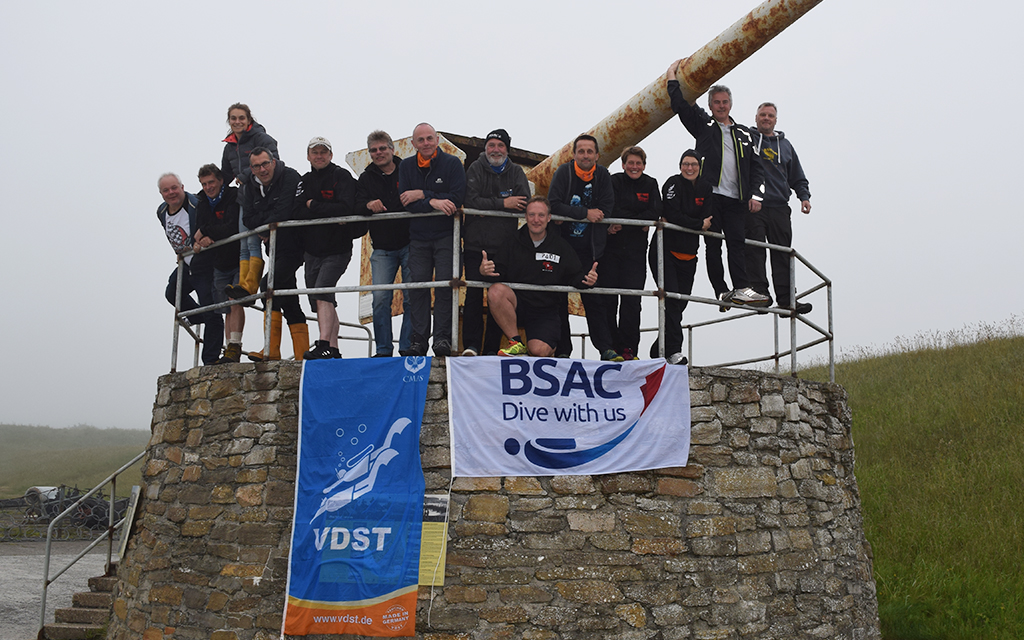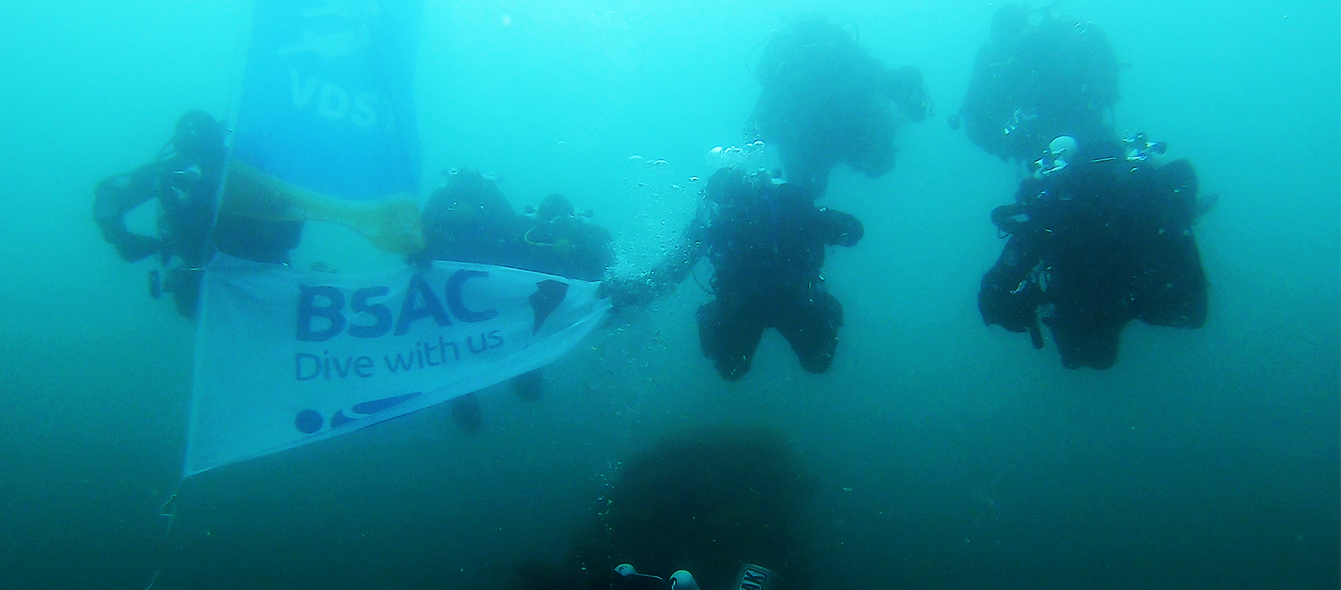
The centenary commemorations of the scuttling of the German High Seas Fleet at Scapa Flow may be over, but the year-long BSAC project continues and steps up a gear this week with a joint Anglo/German dive team.
Members of both the British Sub-Aqua Club (BSAC) and the Verband Deutscher Sporttaucher (VDST) are onboard MV Halton for the week, diving Scapa Flow together in collaboration for BSAC's Scapa 100 project. The primary focus, as always, is enjoyable and safe dives on the main wrecks, especially the SMS Coln which has been chosen as the principal wreck of the project. The Coln was chosen as the focus because it is the most intact cruiser, but also due to its historical inclusion in the BSAC Expedition Manual as a case study.
Andy Hunt, BSAC National Expedition Officer said,
Our project has multiple aims including promotion of underwater science and exploration working with others with similar aims. Given the significant timing, one hundred years on from the scuttling, we are privileged to be enjoying the diving alongside our colleagues from the German Diving Federation (VDST).
While there, the team are also getting to grips with photogrammetry – the science, and indeed art, of creating 3D models from 2D images captured on a compact video camera. Within the first day, the team are already capturing valuable footage and creating 3D models of interesting artefacts for the online virtual museum. These will be uploaded and featured on the BSAC Scapa 100 Sketchfab site.
The group have also been given the opportunity to experiment with different types of camera systems, including the Paralenz dive camera courtesy of Jacob at Paralenz. Bob Anderson on MV Halton is kindly looking after the camera equipment for the duration of the trip.

BSAC and VDST come together underwater for Scapa's centenary
The team on deck of the V83 torpedo boat at Scapa Flow, flying the flags of their respective organisations.
Ainsley and Rachel from Scapa Scientific have also provided members of the dive team with LogBEE sensors which track, not only dive profiles, but also temperature data to a much greater precision and consistency than dive computers. Data is being used as a part of wider studies investigating real dive profiles and also environmental studies in the Flow.
Steffen Scholz of VDST said,
This is an excellent opportunity to work with divers from BSAC to exchange and borrow ideas on wreck diving; the different kit configurations, strategies and scientific tools available to the average diver.
Other BSAC dive teams are in the Flow this week, including Clidive - a London-based BSAC club - who are diving from their club RHIB.
For more information visit:
BSAC members save £££s every year using BSAC benefits.
Join BSAC today and start saving on everything from scuba gear, diving holidays and diver insurance, to everyday purchases on food, online shopping and retail with BSAC Plus. Click to join BSAC today.



